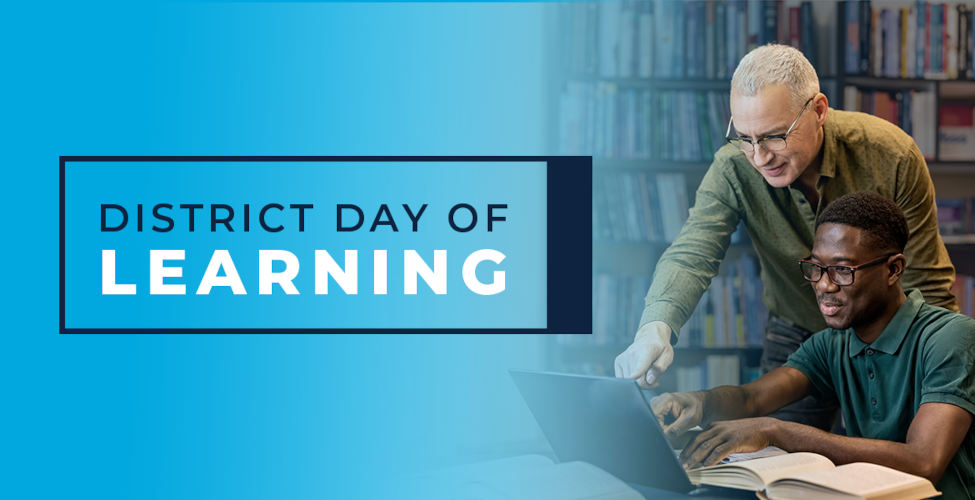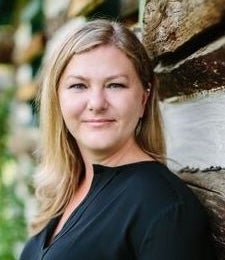
Illuminating the Classroom: A Path to Transparency and Student Success
Please use the password: UdxJsFi2
Complete the Event Evaluation & Assessment
For this year’s District Day of Learning, we invite you to ask, consider, and explore the ways in which we can continue to make our institutions more transparent for our students by, more specifically, narrowing our focus on a site most familiar to us and our students–the classroom.
On the one hand, the classroom is the site where the most potential for transformation resides. It is the space where an assignment, a reading, a discussion, a lecture, a conversation, or an activity can positively change how a student may conceptualize themselves and their lives.
On the other hand, the classroom is also a site where our students most struggle. It is a place where students get stuck; a space that many of them end up abandoning; a place where confusion abounds; a context where our disciplinary knowledge and expertise can often limit rather than expand access.
With this in mind, for this year's District Day of Learning, we invite you to continue the important work of making our institutions more transparent for our students by exploring ways to demystify the classroom. To do this, we ask: what are the specific tasks or concepts within our discipline that students often struggle to understand or master? How can we make the processes by which to get past these “bottlenecks” more explicit to our students? How can we make more transparent the steps, decisions, and mental processes involved in solving the problems or understanding the concepts of our disciplines?
We look forward to your participation in this year's District Day of Learning as we explore these vital questions and seek to make our classrooms perennial sites of student success.
Keynote Speaker
 Dr. Michelle Yeo is a Professor and Director of the Mokakiiks Centre for the Scholarship of Teaching and Learning at Mount Royal University in Calgary, Canada. She is past president of the International Society for the Scholarship of Teaching and Learning (ISSOTL). Dr Yeo is co-author of SoTL Research Methodologies: A Guide to Conceptualizing and Conducting the Scholarship of Teaching and Learning. Her current research program includes three pillars: student experience of learning, scholarship of educational development, and decolonizing practices in higher education. She is interested in understanding and catalyzing complex development and supporting authentic, reflective practice at all levels of the institution.
Dr. Michelle Yeo is a Professor and Director of the Mokakiiks Centre for the Scholarship of Teaching and Learning at Mount Royal University in Calgary, Canada. She is past president of the International Society for the Scholarship of Teaching and Learning (ISSOTL). Dr Yeo is co-author of SoTL Research Methodologies: A Guide to Conceptualizing and Conducting the Scholarship of Teaching and Learning. Her current research program includes three pillars: student experience of learning, scholarship of educational development, and decolonizing practices in higher education. She is interested in understanding and catalyzing complex development and supporting authentic, reflective practice at all levels of the institution.
Over the past 20 years, Decoding the Disciplines has provided a powerful means to help teachers unlock expert blindspots in disciplinary thinking (Middendorf & Pace, 2004). Unpacking tacit knowledge through the process can be tremendously helpful to the expert who is attempting to teach those concepts to novices. Decoding the Disciplines involves a 7 step process as described by Middendorf and Pace (2004), in a cycle of: identifying a bottleneck in learning, exploring in depth how the expert approaches this task or problem, devising ways to model these steps to students, developing activities where students can practice the skill and get feedback, motivating and assessing students, and finally, sharing out to the discipline. In this presentation we will think together about how Decoding can provide one possible framework to support our efforts in making the learning process more transparent to our students, create more inclusive classrooms, and connect with our learners. While originally developed over two decades ago, Decoding the Disciplines continues to evolve to help meet the pressing needs of today's classrooms.
Middendorf, J. & Pace, D. (2004). Decoding the disciplines: A model for helping students learn disciplinary ways of thinking. In New Directions of Teaching and Learning, 98. Decoding the Disciplines: A Model for Helping Students Learn Disciplinary Ways of Thinking (D. Pace and J, Middendorf, Eds.) Jossey-Bass, pp. 1-12.
Faculty Professional Growth Information
For Residential and Adjunct Faculty applying for Faculty Professional Growth, you can receive 2.75 clock hours toward FPG non-academic advancement. To qualify, you must:
- Sign in within the first 15 minutes of the event begins.
- Participate in the entire event.
- Sign out no earlier than 15 minutes before the end of the event.
- Complete the evaluation and assessment by 12:00 p.m. on Monday, January 13, 2025.
Then
- Residential faculty must complete and apply for Faculty Professional Growth Non-Academic clock hours within 90 days of today’s event.
- Adjunct faculty must complete the form in HCM within 30 calendar days of today’s event.